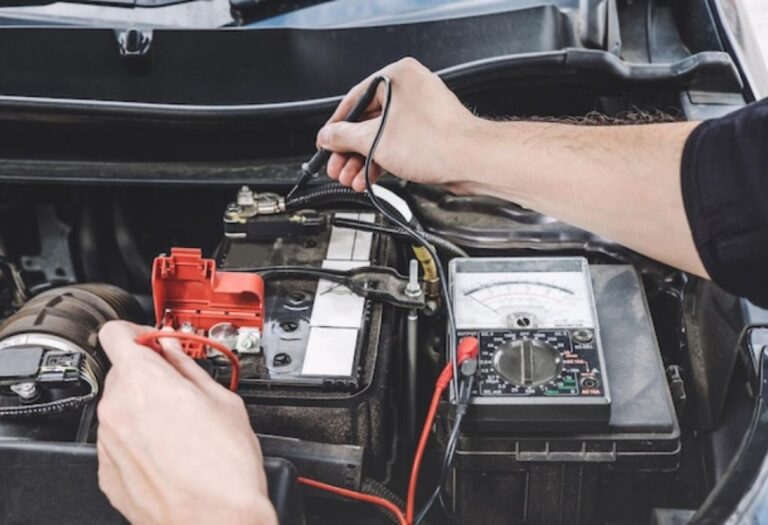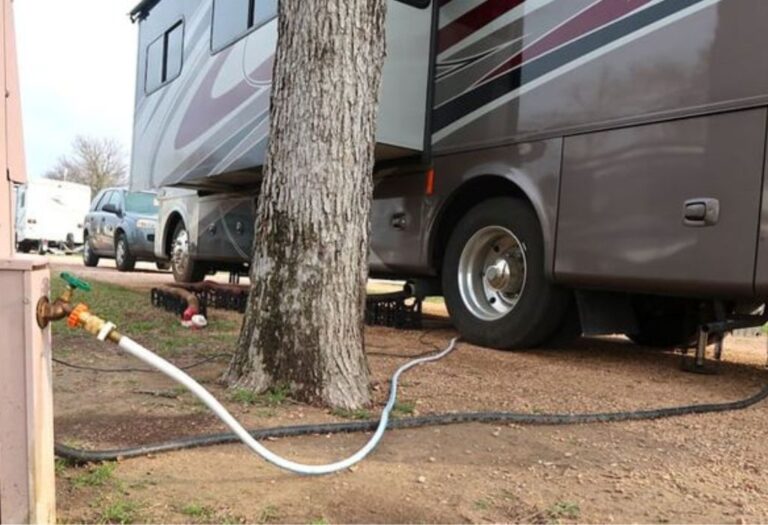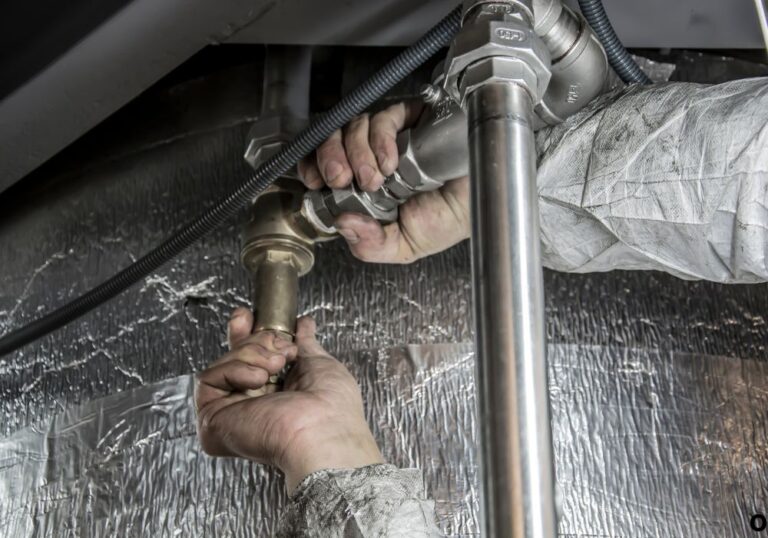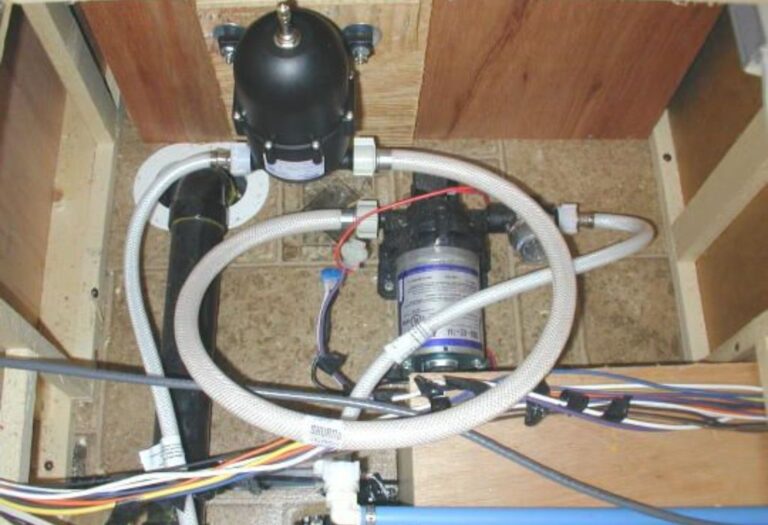Why Does My RV Water Smell Like Rotten Eggs?
If your RV water smells like rotten eggs, it’s almost always caused by sulfur bacteria or hydrogen sulfide gas forming in your water heater, fresh water tank, or plumbing lines. The solution usually involves flushing, sanitizing, and replacing the anode rod in your RV’s water heater.
What Does the Rotten Egg Smell Mean in RV Water?
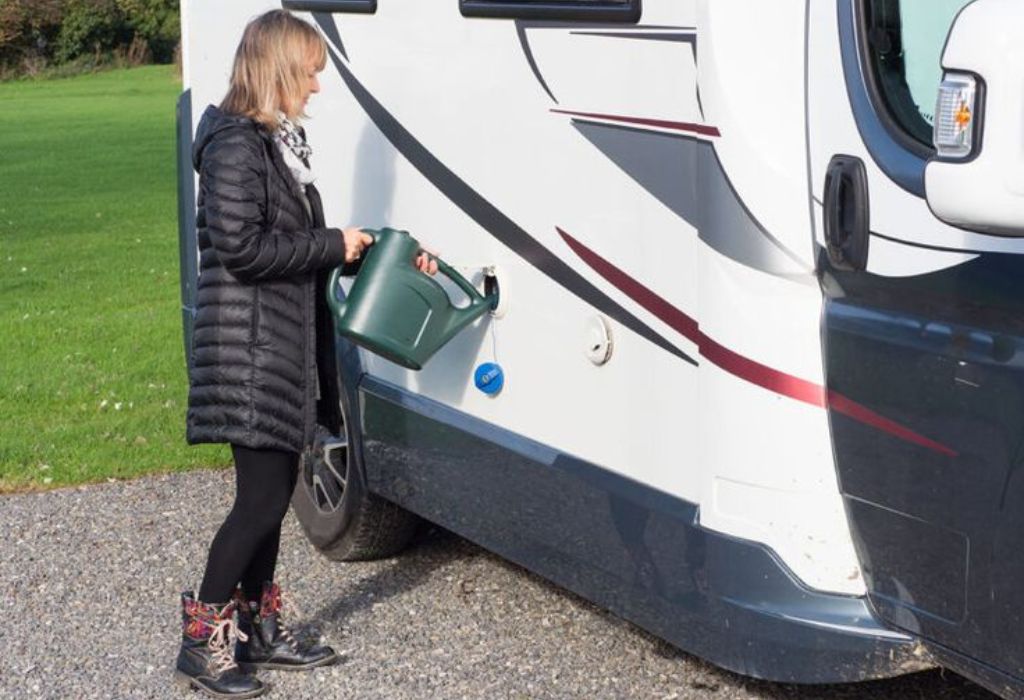
That “rotten egg” or sulfur odor comes from hydrogen sulfide (H₂S) gas. It’s a natural byproduct of bacteria feeding on sulfur compounds inside your RV’s water system.
These bacteria thrive in warm, stagnant water, especially inside the hot water tank, where the magnesium anode rod reacts with water and produces hydrogen gas — the perfect food source for sulfur bacteria.
Over time, this reaction makes the water smell bad and even gives it a metallic or sulfur taste.
Main Causes at a Glance
- Sulfur bacteria inside the hot water heater tank
- Old or corroded anode rod made of magnesium
- Stagnant water in storage tanks after long RV parking periods
- Contaminated campground water supply
- Dirty plumbing lines or improperly sanitized systems
Is It Safe to Use or Drink RV Water That Smells Like Rotten Eggs?
The short answer: No, not without sanitizing it first.
While the smell itself is not directly toxic, it indicates bacterial contamination or chemical imbalance. Using or drinking this water can cause digestive irritation or introduce bacteria into your system.
Never drink or cook with RV water that smells like sulfur until it’s fully cleaned and tested.
Common Sources of Rotten Egg Odor in RV Water
1. RV Water Heater Tank
This is the most common source. The magnesium anode rod used to prevent corrosion reacts with water, producing hydrogen gas. When sulfur bacteria are present, they convert that hydrogen into hydrogen sulfide gas — the culprit behind the smell.
Fix: Replace the magnesium rod with an aluminum-zinc anode rod to reduce odor formation.
2. Fresh Water Storage Tank
Water that sits unused for days or weeks becomes stagnant and a breeding ground for bacteria. Warm weather and sunlight can speed up this process.
Fix: Drain and sanitize the tank using household bleach or an RV water system sanitizer. Refill with clean, treated water.
3. Plumbing Lines
Biofilm or mineral deposits can trap bacteria inside your pipes. When water flows through, it picks up that unpleasant sulfur smell.
Fix: Flush the lines with a bleach-water solution or vinegar rinse, then run clean water through the system.
4. External Water Source
Sometimes the issue isn’t your RV — it’s the campground or local water supply. If the smell appears only when connected to a specific hookup, the problem likely lies there.
Fix: Use a high-quality inline water filter or carbon filter to block hydrogen sulfide and bacteria.
Step-by-Step: How to Fix Rotten Egg Smell in RV Water
Here’s the full process to remove the odor and prevent it from coming back.
Step 1: Turn Off and Drain the Water Heater
Let the tank cool completely before opening the drain plug.
Once drained, remove the anode rod and inspect it — if it’s corroded, replace it.
Pro Tip: Use an aluminum-zinc alloy rod; it lasts longer and minimizes sulfur smell buildup.
Step 2: Sanitize the Water Heater
Mix one cup of bleach per 10 gallons of tank capacity in a container.
Pour the solution into the water heater through the pressure relief valve or an access port. Let it sit for 6–12 hours, then flush with clean water until no bleach smell remains.
Step 3: Sanitize the Fresh Water Tank
- Turn off the water pump and open all faucets.
- Mix ¼ cup of bleach per 15 gallons of water and pour it into the tank.
- Fill the tank with fresh water and run it through every faucet until you smell chlorine.
- Let it sit for 8–10 hours, then drain completely and refill with fresh water.
Step 4: Flush the Plumbing Lines
Fill the system again with clean water and run it through all faucets for 5–10 minutes.
Add 1 cup of white vinegar per 10 gallons to neutralize any chlorine after disinfection.
Step 5: Replace or Upgrade the Anode Rod
If your water heater keeps creating odor, replace the rod with a zinc-aluminum anode instead of magnesium.
These rods significantly reduce the bacterial reaction that causes sulfur smell.
Step 6: Add a Water Filter or Softener
Install a carbon-based filter on your main water line. Carbon filtration removes hydrogen sulfide, iron, and organic compounds that cause odor.
Softened water also helps reduce corrosion inside the tank.
Why Hydrogen Sulfide Forms in RV Water Systems
Hydrogen sulfide gas forms when anaerobic bacteria (those that live without oxygen) react with hydrogen molecules. These bacteria thrive in dark, warm, and still environments — the same conditions inside an unused RV tank.
When the bacteria interact with magnesium or sulfur minerals in water, they produce that characteristic rotten egg smell.
Key Conditions That Encourage Sulfur Smell
- Low oxygen and stagnant water
- High temperature (90°F–130°F)
- Presence of magnesium anode rods
- Organic debris or biofilm buildup
- Soft water with dissolved sulfates
How to Prevent RV Water From Smelling Like Rotten Eggs
Prevention is easier than repair. Here are the top preventive maintenance habits for odor-free RV water.
1. Drain and Sanitize Regularly
Clean the system every 3 months or after long storage. Use bleach or commercial sanitizers approved for RV systems.
2. Keep the Water Heater on When Traveling
Keeping it hot discourages bacterial growth. If you plan to park for weeks, turn it off and drain it instead.
3. Flush Before and After Every Trip
Before you hit the road, flush fresh water through the system to remove stale water. Do the same when you return to prevent stagnation.
4. Use Filtered or Treated Water
Install a carbon filter at your city water connection or when filling the tank. This removes hydrogen sulfide and chlorine taste from campground water.
5. Maintain the Anode Rod
Inspect it twice a year. Replace it when more than 75% corroded. Use zinc-aluminum alloy rods to minimize odor.
FAQs: RV Water Smells Like Rotten Eggs
Why does my RV hot water smell worse than cold?
Because the heat speeds up bacterial activity and the magnesium rod reaction inside the water heater.
Will the smell go away on its own?
No — it will worsen as bacteria multiply and spread through the plumbing system.
Can vinegar fix the smell?
It helps neutralize mild odors but won’t kill all bacteria. You still need a full bleach sanitization.
Is hydrogen sulfide gas dangerous?
In small RV concentrations, it’s mostly unpleasant but not toxic. In sealed areas, however, avoid inhalation.
How often should I clean the RV water system?
Every 3 months or anytime the RV sits unused for more than two weeks.
Professional Maintenance Tip
If your RV water still smells after a full cleaning, the check valve or bypass system may be harboring biofilm.
RV service centers can acid-flush the lines and sanitize your heater using hydrogen peroxide or specialized RV cleaners.
RV Water Smells Like Rotten Eggs After Winterization
If the smell appears after de-winterizing your RV, it usually means antifreeze residue or bacteria regrowth from sitting idle.
Fix it by:
- Flushing the system with hot water.
- Running vinegar-water solution through faucets.
- Sanitizing with ¼ cup bleach per 15 gallons of water.
- Draining and refilling the tank completely.
This removes any residue from RV antifreeze or bacteria that grew during storage.
Advanced Fixes for Persistent Odor
If the odor returns frequently, you may need to take a deeper approach:
- Replace flexible hoses that trap moisture or biofilm.
- Install a UV water purification light in your system.
- Switch to an electric water heater without an anode rod.
- Use chlorination tablets in the fresh tank for long-term storage.
These options prevent bacterial buildup and keep water fresh even after months of inactivity.
RV Owner Pro Tips
- Always drain the fresh water tank when parking long-term.
- Store the RV with the water heater valve open for ventilation.
- Add ½ cup of baking soda to neutralize odors naturally during short trips.
- Label your maintenance dates and replace filters every 90 days.
When to Seek Professional Help
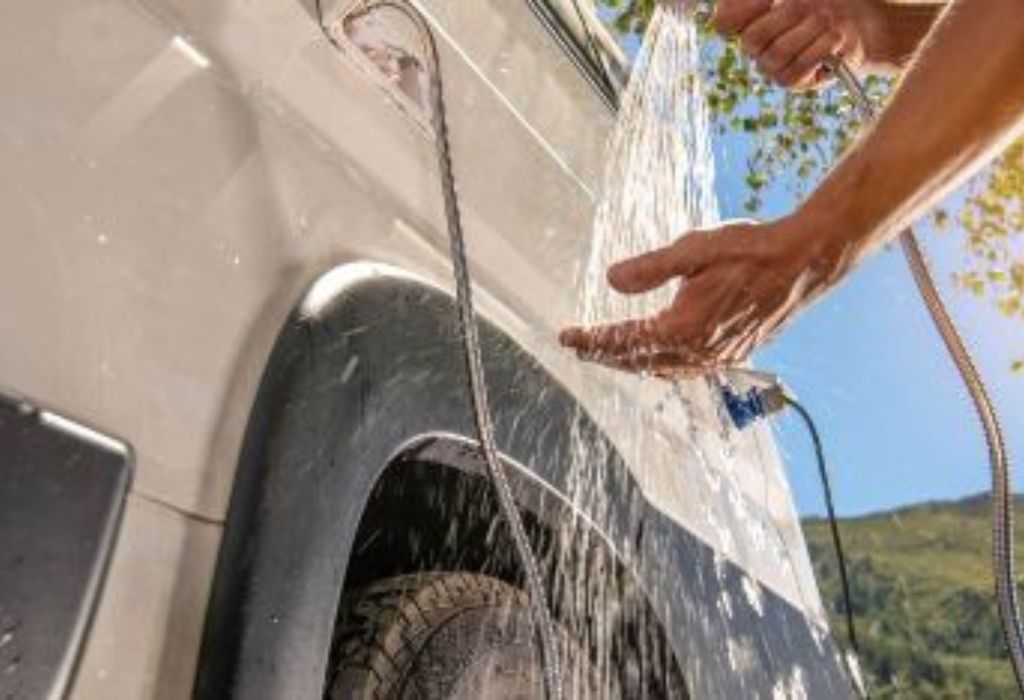
If your water still smells after full sanitization, you could have:
- A damaged anode rod housing
- Contaminated water lines behind the heater
- Cracked tank insulation trapping moisture
A professional RV technician can pressure-test the lines, inspect fittings, and replace corroded parts safely.
Key Takeaways: Fixing Rotten Egg Smell in RV Water
| Cause | Main Fix | Prevention |
| Bacteria in water heater | Flush and replace anode rod | Use aluminum-zinc rods |
| Stagnant tank water | Sanitize with bleach | Drain after every trip |
| Dirty plumbing lines | Flush with vinegar or sanitizer | Rinse before storing |
| Campground water contamination | Use carbon filter | Test water before filling |
| Recurrent odor | Replace hoses / heater rod | Clean every 3 months |
Conclusion
If you’re wondering why does my RV water smell like rotten eggs, the answer is almost always sulfur bacteria in the water heater or tank.
The fix is simple:
Drain the system
Sanitize with bleach
Replace the anode rod
Flush lines and refill with fresh, filtered water
Maintaining your RV’s plumbing every few months prevents this odor from coming back. Clean water isn’t just about smell — it protects your pipes, heater, and health for the long road ahead.
So, the next time your RV water starts smelling like sulfur, don’t panic — just sanitize, flush, and enjoy fresh, odor-free water again.
I’m David R. Coleman, the founder, lead writer, and lifelong tool enthusiast behind GarageToolPro.com. With years of experience in automotive repair, woodworking, and home DIY projects, I created this platform to share practical tips, detailed tool reviews, and step-by-step guides that help mechanics, hobbyists, and homeowners get the job done right the first time.

